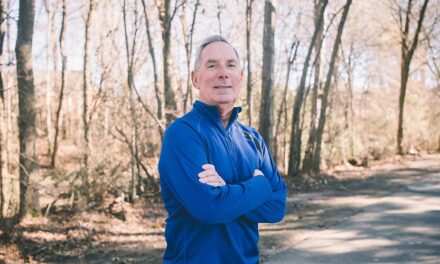Aging is a natural process, but there are various ways to potentially slow it down and maintain your vitality. It’s not just about living longer but being fulfilled while we live longer. Here’s a comprehensive guide on strategies to help slow aging, focusing on lifestyle choices, diet, mental health, and more. Although I am a cardiologist, an individual’s persistent lifetime focus on total body and mind health is crucial to mitigating external and internal aging, which in turn provides many benefits to your heart health.
1. Healthy Diet
Balanced Nutrition: A diet rich in fruits, vegetables, whole grains, lean proteins, and healthy fats can help maintain bodily functions and prevent age-related diseases. Antioxidants, found in berries, nuts, and green leafy vegetables, combat oxidative stress that accelerates aging.
Hydration: Staying well-hydrated is crucial for maintaining skin elasticity and overall bodily functions. Aim for eight to 10 glasses of water daily. Herbal teas and water-rich fruits like cucumbers and watermelon also contribute to hydration.
Limit Processed Foods: Minimize processed foods high in sugars, unhealthy fats, and sodium intake. These can contribute to inflammation and accelerate aging.
2. Regular Exercise
Cardiovascular Health: To improve heart health and increase longevity, engage in aerobic exercises like walking, running, or swimming. Aim for at least 150 minutes of moderate-intensity exercise per week. The more, the better.
Strength Training: Incorporate resistance exercises to maintain muscle mass and bone density. Activities such as weightlifting or bodyweight exercises help counteract muscle loss associated with aging.
Flexibility and Balance: Yoga or stretching exercises enhance flexibility and balance, reducing the risk of falls and injuries.
3. Mental and Emotional Well-being
Stress Management: Chronic stress accelerates aging by increasing inflammation and impairing bodily functions. Practices like meditation, deep breathing, and mindfulness can reduce stress levels.
Social Connections: Maintaining strong social relationships and engaging in social activities can improve mental health and longevity. Social support is linked to lower rates of depression and better overall well-being.
Lifelong Learning: Keep your mind active through continuous learning, whether through reading, puzzles, or learning new skills. Intellectual stimulation helps keep cognitive functions sharp.
4. Quality Sleep
Adequate Rest: Aim for seven to nine hours of quality sleep per night. Sleep is crucial for cell repair, cognitive function, and emotional regulation.
Sleep Hygiene: Establish a regular sleep schedule, create a restful environment, and avoid screens before bedtime. Good sleep hygiene practices improve sleep quality and overall health.
5. Skin Care
Sun Protection: UV exposure accelerates skin aging and increases the risk of skin cancer. Use sunscreen with at least SPF 30 daily, even on cloudy days, and wear protective clothing.
Moisturization: Use moisturizers that suit your skin type to keep your skin hydrated. This helps maintain skin elasticity and reduces the appearance of wrinkles.
Gentle Cleansing: Use mild cleansers to avoid stripping your skin of natural oils. Overwashing can lead to dryness and irritation.
6. Avoid Harmful Habits
Smoking: Smoking accelerates aging by damaging collagen and elastin, leading to premature wrinkles and skin sagging. Quitting smoking can improve skin health and overall well-being.
Excessive Alcohol: Limit alcohol consumption, as excessive drinking can dehydrate the skin and impair liver function. Moderation is key to maintaining health and vitality.
7. Regular Health Check-ups
Preventive Screenings: Regular health screenings for blood pressure, cholesterol levels, and other markers can help detect issues early and manage them effectively. Many effective screening tools and approaches can detect disease early. Talk to your doctor.
Vaccinations: Stay up-to-date with vaccinations to prevent illnesses that can affect your health and quality of life as you age. They work; don’t be fooled by misinformation.
8. Mental Health and Cognitive Function
Mindfulness and Relaxation: Practices like mindfulness, yoga, or Tai Chi reduce stress and promote mental clarity and emotional balance.
Social Engagement: Participating in community activities or hobbies can stimulate the brain and improve mental health.
Preventative Cognitive Care: Engage in activities that challenge the brain, such as learning a new language or playing strategic games, to help maintain cognitive function.
9. Genetic Factors and Emerging Research
Genetics: While genetics play a significant role in aging, research is ongoing in areas like gene therapy and epigenetics that may offer future insights into slowing aging processes.
Emerging Technologies: Stay informed about advancements in anti-aging research, such as senescence cell removal, telomere extension, and other cutting-edge treatments that may offer new ways to slow aging.
10. Positive Attitude
Optimism: A positive outlook on life is linked to better health outcomes and increased longevity. Embrace a mindset of gratitude, focus on the positives, and maintain a sense of purpose.
Purposeful Living: Engage in activities and goals that bring you joy and fulfillment. Having a sense of purpose can contribute to overall well-being and longevity.
Slowing the aging process involves a holistic approach that integrates physical health, mental well-being, and lifestyle choices. By adopting a balanced diet, regular exercise, good sleep habits, and avoiding harmful behaviors, you can enhance your quality of life and potentially extend your years of vitality.
Dr. Szatkowski is the Medical Director of the Baptist-Stern Joint Venture, acting President of the Medical Staff at Baptist Desoto Hospital, and Director of Cardiovascular Services and the Echocardiography lab at Baptist Desoto Hospital. He is also the Director of Quality for The Stern Cardiovascular Foundation. For more information, call 901.271.1000 or visit Sterncardio.com.
Easy Ways to Stay Fit & Healthy Right to Your Inbox!
Health+Fitness tips and specials sent to you twice a month!






